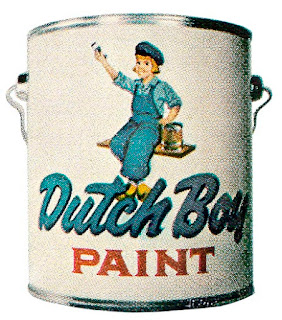My favorite TV show, the darkly comic Weeds, is ending in a
few weeks, and with it I bid a sad farewell to one of the best theme songs ever:
"Little Boxes," a folksy tune that pokes
fun at suburbia and our petty little conformities.
“Little boxes on the hillside, little boxes made of ticky-tacky.”
After you’ve heard that line, how can you not laugh whenever you drive by landscapes
full of overdeveloped, ridiculously priced, scarily manicured McMansions? Which
is always, because this is eastern Massachusetts.
 |
| Little boxes by the turnpike. |
The first Weeds season, the theme song was a scratched up
60s version sung by composer Malvina Reynolds. The next few years, it became a
thing for various performers to lend their voices to the opening credits. Joan
Baez, Death Cab for Cutie, and Linkin Park are just some of the names that
threw down the gauntlet and shoved the dark side of American class aspirations
in our boob tube-deadened faces.
The show dropped the song for a few seasons. But this final
eighth round, Weeds has dug deep and returned to its literal roots. Since the
opening episode’s return to the original Reynold’s classic, the song has been
belted out by a pantheon of our quirkiest performers. My favorite so far is a
hysterical duet by the joyfully idiotic Kevin Nealon, a Weeds regular, and
Steve Martin at his dry, tongue- in-cheek best. I will miss Weeds and its irreverent ode to
our uniquely American inanity.
I like to run with music. I have several go-to songs, but my
favorite for years now has been “All these things that I’ve done,” by the
Killers.
One of the reasons the song initially attracted me was because
of a great youtube video of my hero Joan Benoit crossing the finish line of the
first women’s Olympic marathon, back in 1984. That video, "The First Gold," by
fancyboyproductions, is set to that Killers tune.
The pairing is perfect. The song is about underdogs and
overcoming. So was that first marathon gold. Benoit was a dark horse. She’d
just recovered from knee surgery and wasn’t considered a serious contender for
an Olympic medal.
“Don’t put me on the back burner.” Everyone put her on the
back burner.
“When you can’t go on, go on.” She did.
She changed
everything for a whole generation of women, including me. That was nearly 30
years ago, but I’m still that dreaming “gold-hearted girl I used to be.” (The
Killers verse says boy but I’m not.)
I once hummed “All these things” for four hours, 34 minutes,
and 57 seconds. That’s the time it took me to run the Boston Marathon in 2009, 25
years after Benoit won her gold in Los Angeles. Sometimes it hurt. But I smiled
the whole way. You can’t tell me theme songs don’t matter. It was my best marathon ever.
Even today, the song still works for me. I hear that
repeating first note, a G sharp I believe, and my heart speeds up. I suddenly want to “shine on in the hearts of
men.” I need to leap tall buildings in a single bound. I crave the road.
Lately I’ve fallen in
love with a new song. I’m not abandoning my Killers. I’m just expanding my
theme song repertoire. "Wrecking Ball," by Bruce Springsteen, is also about hard
times and coping. On the surface, it’s about the demolition of Giants Stadium.
But like all Springsteen songs, this one goes deeper. Supposedly, it’s also an ode
to the American worker and our limitless capacity for handling crap. For me,
it’s more.
“Hard times come and hard times go, just to come again.” Tell
me about it. Struggling here, but not dead yet. (Yup. I made a "Holy Grail"
reference.)
 | |
| John Cleese is furrier than I remember. |
These past few weeks, I’ve been playing "Wrecking Ball" a lot.
The song is helping me cope. Some of the stuff I’m
dealing with is minor, like getting through a hot run, for example. Even having
to come to terms with the fact that I need to put out some hefty dollars for a
new oil burner is trivial, in the grand scheme of things.
Because unfortunately there’s a dark cloud on the
horizon, a huge twister of a mess heading this way. I’m taking
deep breaths and keeping my eyes focused on what lies ahead. I’ve got my theme songs set on repeat. It's going to be a long, hard run.
 | |
| Take that, wrecking ball. |




